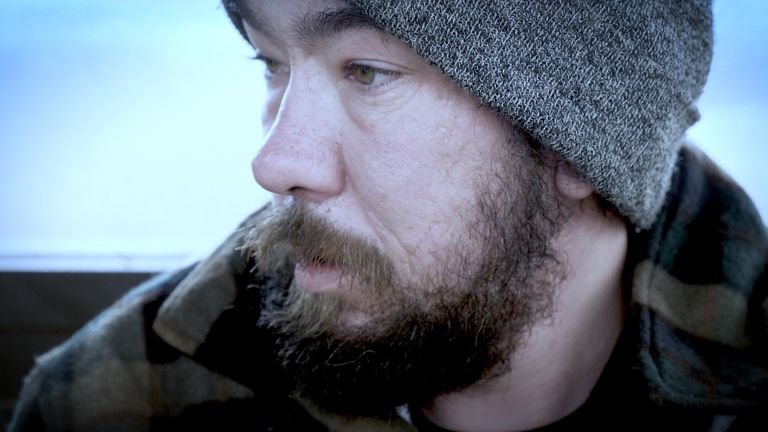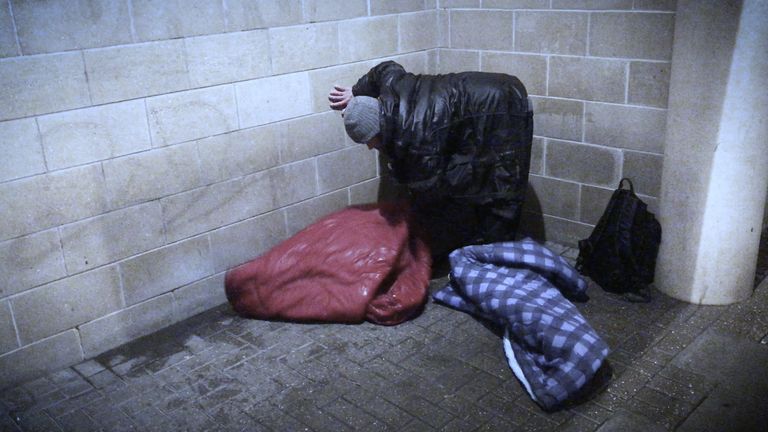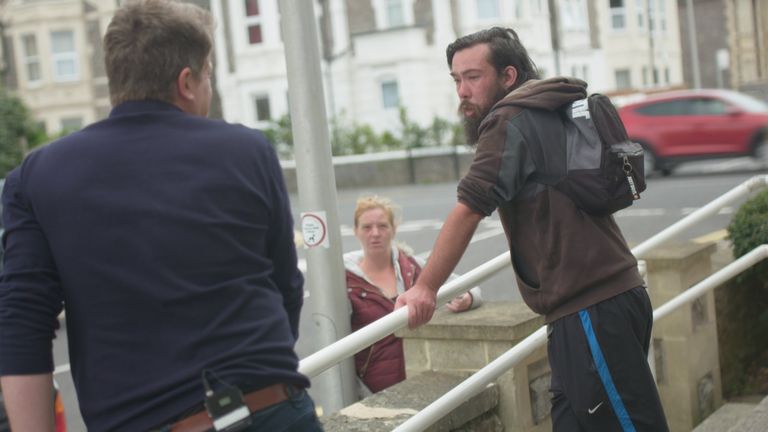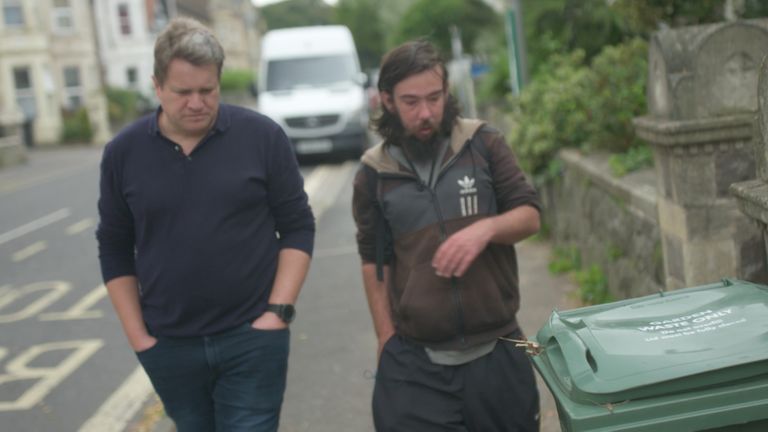Homelessness: Thousands of people helped during pandemic but problem remains
I first met Tom Allen last November – it was raining and he was cold and hungry.
Tom, who had spent three years on the streets of Weston Super Mare, was eating his only hot meal of the day, given to him by a local charity.
He was born with a spina bifida, a condition which affects the spine and, for Tom, meant he could not control when he needed to use the toilet. As a disabled homeless man, his situation was desperate. I saw him again in February and nothing had changed. He was still homeless.
When the pandemic struck, the government handed councils more than £3bn and told them to house their homeless, an operation that became known as “Everyone In”.
Luckily, Tom was given emergency accommodation before the coronavirus pandemic hit.
He said: “I’m so much more relaxed and not worried all the time – it’s brilliant.”
But housing the homeless costs money.
The Salvation Army is warning that homelessness and rough sleeping will “soar” if the government fails to properly fund homeless support services in this autumn’s Comprehensive Spending Review. The charity wants more investment in a long-term solution.
Policy adviser Jonathon Graham said: “What we mean by long-term funding is not that it will be renewed year on year, which casts doubt on whether the services Tom is using will be there in 12 months’ time, but there will be multi-year settlements so that Tom can have confidence if he continues to need access to that support he will get it.”
Despite the recent government scheme, figures from the Greater London Authority have shown a 33% increase in rough sleeping in the capital alone compared to the same period last year, with almost two-thirds (63%) of people sleeping rough for the first time.
Jon Sparkes, chief executive of Crisis, said: “As winter approaches, we cannot see people forced back out onto the streets.
“With no certainty as to how long contracts with hotels will last and more and more people becoming homeless because of the financial impact of the outbreak, looking ahead to the colder months we could see a sharp risk in the numbers of people sleeping on the streets, at risk from the elements and coronavirus.”
The Local Government Association said that in 2018/19 alone, councils overspent on homelessness services by £140m due to an increase in demand and a lack of affordable housing to accommodate people.
The Ministry for Housing, Communities and Local Government said: “We are providing over half a billion pounds to tackle homelessness and rough sleeping this year to provide longer-term accommodation – including 3,300 homes this year alone – and tailored support so as few people as possible return to life on the streets.
“We have also changed the law so councils have a duty to try to stop people from becoming homeless in the first place as part of our commitment to break the cycle of homelessness and end rough sleeping for good.”
After we told Tom’s story in November, several crowd-funding pages were set up. A staggering £12,000 was raised for him, money which is being used to secure his future.
It seemed wholly wrong that a disabled man should be on the streets. In many respects, Tom is one of the lucky ones: he has managed to get off the streets and into temporary accommodation.
But progress is slow, and the future for thousands of vulnerable people remains uncertain.
Thousands of people have been taken off the streets since the pandemic hit and there is some evidence to suggest many are already back where they started.
Source: Read Full Article






